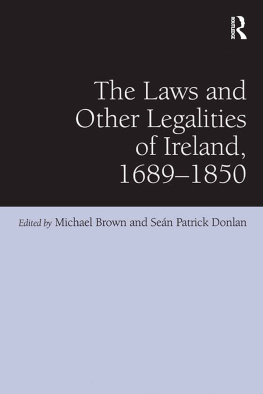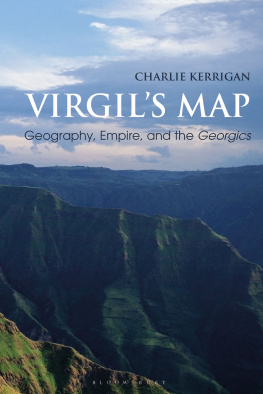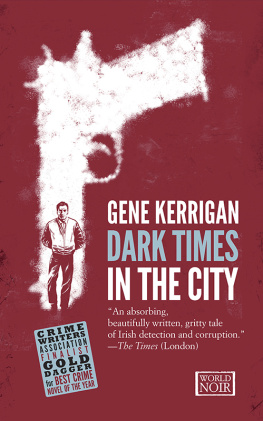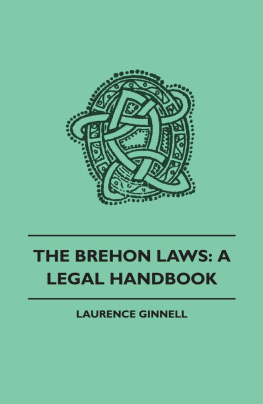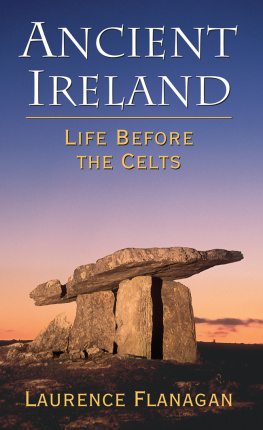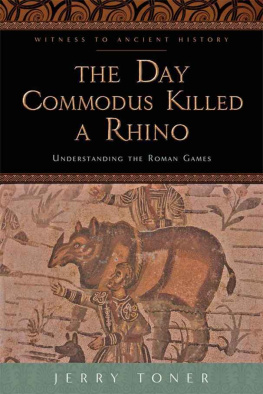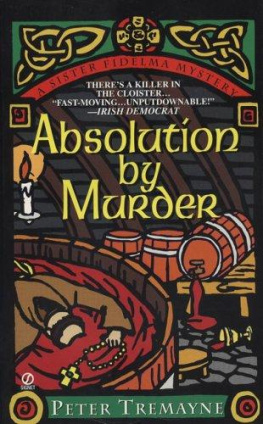Jo Kerrigan - Brehon laws : the ancient wisdom of Ireland
Here you can read online Jo Kerrigan - Brehon laws : the ancient wisdom of Ireland full text of the book (entire story) in english for free. Download pdf and epub, get meaning, cover and reviews about this ebook. year: 2020, publisher: The OBrien Press Ltd, genre: Religion. Description of the work, (preface) as well as reviews are available. Best literature library LitArk.com created for fans of good reading and offers a wide selection of genres:
Romance novel
Science fiction
Adventure
Detective
Science
History
Home and family
Prose
Art
Politics
Computer
Non-fiction
Religion
Business
Children
Humor
Choose a favorite category and find really read worthwhile books. Enjoy immersion in the world of imagination, feel the emotions of the characters or learn something new for yourself, make an fascinating discovery.

- Book:Brehon laws : the ancient wisdom of Ireland
- Author:
- Publisher:The OBrien Press Ltd
- Genre:
- Year:2020
- Rating:4 / 5
- Favourites:Add to favourites
- Your mark:
- 80
- 1
- 2
- 3
- 4
- 5
Brehon laws : the ancient wisdom of Ireland: summary, description and annotation
We offer to read an annotation, description, summary or preface (depends on what the author of the book "Brehon laws : the ancient wisdom of Ireland" wrote himself). If you haven't found the necessary information about the book — write in the comments, we will try to find it.
Brehon laws : the ancient wisdom of Ireland — read online for free the complete book (whole text) full work
Below is the text of the book, divided by pages. System saving the place of the last page read, allows you to conveniently read the book "Brehon laws : the ancient wisdom of Ireland" online for free, without having to search again every time where you left off. Put a bookmark, and you can go to the page where you finished reading at any time.
Font size:
Interval:
Bookmark:


- In which the true value of this rich heritage is expounded.
- Touching upon the best efforts of Celts and Christians, Vikings and Normans, to eradicate these great laws; also how the Elizabethan age and the Penal Laws almost succeeded, but how Brehon law somehow survived in hiding.
- Of kings and judges, poets and innkeepers not forgetting the upwardly (and downwardly) mobile. The importance of the tribe and of the family, and the system of fosterage.
- Concerning murder and theft, injury and insult, restitution and rehabilitation. Also, the offence of the looker-on, and the punishment of the ninth wave.

- Wherein these are defended from injury, but also made responsible through their proper owner for their own trespasses. The personal importance of pet dogs, the rule of the cat in his every activity.
- Being the control of boundaries, every mans right to water, the guarding of the trees be they noble or common.
- On land ownership and property, marriage and divorce, insult and rape of both kinds. The proper vengeance of a first wife upon a second, and the power of a true queen.
- Treating of daily life three thousand years ago, as the old laws depict it.


Font size:
Interval:
Bookmark:
Similar books «Brehon laws : the ancient wisdom of Ireland»
Look at similar books to Brehon laws : the ancient wisdom of Ireland. We have selected literature similar in name and meaning in the hope of providing readers with more options to find new, interesting, not yet read works.
Discussion, reviews of the book Brehon laws : the ancient wisdom of Ireland and just readers' own opinions. Leave your comments, write what you think about the work, its meaning or the main characters. Specify what exactly you liked and what you didn't like, and why you think so.


